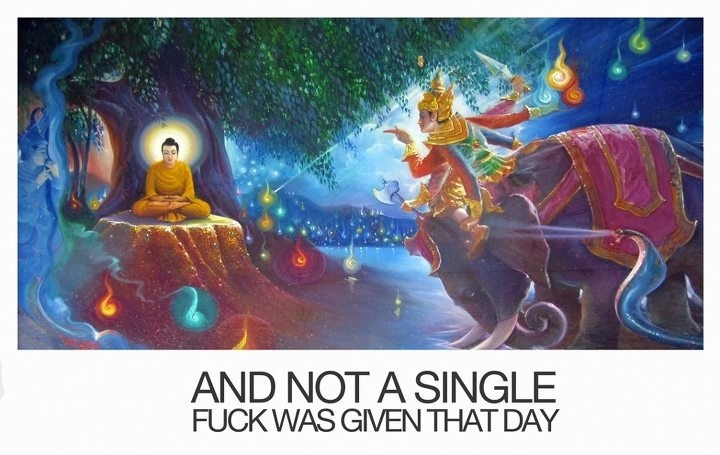 Meditation is hard. I would say mastering own’s mind is the most difficult thing in the world. It is so hard that most people do not see any point in even starting sitting quietly observing own breathe. It took me 26 years to realise the caliber of the problem with human’s mind and how meditation can help. Progress in meditation is slow and mostly unnoticeable, which can be very frustrating. A retreat like this can really speed things up. A daily meditation practice is like walking from Moscow to Beijing. A 10 days retreat would be akin to taking a train on the way. Granted finishing the retreat is not an easy feat and I cannot say that it gets easier with time, but the benefit from such a course is enormous, no matter what your meditation background is (if any).
Meditation is hard. I would say mastering own’s mind is the most difficult thing in the world. It is so hard that most people do not see any point in even starting sitting quietly observing own breathe. It took me 26 years to realise the caliber of the problem with human’s mind and how meditation can help. Progress in meditation is slow and mostly unnoticeable, which can be very frustrating. A retreat like this can really speed things up. A daily meditation practice is like walking from Moscow to Beijing. A 10 days retreat would be akin to taking a train on the way. Granted finishing the retreat is not an easy feat and I cannot say that it gets easier with time, but the benefit from such a course is enormous, no matter what your meditation background is (if any).
Having said that concentration meditation is relatively easy. You observe your breathe or any other object, get lost in those seductive thoughts, and return to observing the object. Rinse, repeat, rinse, repeat again. Do it about 173478233 times and eventually it will become easier. On the other hand vipassana or insight meditation is much more subtle. Concentration is no longer the point, but a tool. Instead you develop equanimity and awareness. Equanimity goes by many different names: accepting what it is, being in the moment, not giving a fuck and so on. It is basically accepting the reality as it is this very moment instead of escaping to the world of past and future. A very tricky business, especially when you have a huge emotional storm or waves of pure bliss coming onto you. How not react to that, indeed? The second tool of vipassana is awareness. Awareness is the knowledge of what is going on inside your body, mind and outside world from moment to moment. More specifically it is the momentary knowledge of five aggregates, but a discussion of those goes way beyond the scope of this short blog post. Can you feel the touch of your body and the surface you are sitting on? Did you moments ago? This is what awareness is all about, but on a much deeper level.
These are the intellectual facts, but understanding them on a deeper level is a whole different matter. Knowledge and experience are two different beasts and vipassana is all about your personal experience. Seeing and experiencing things for yourself deep inside. Simple as that.